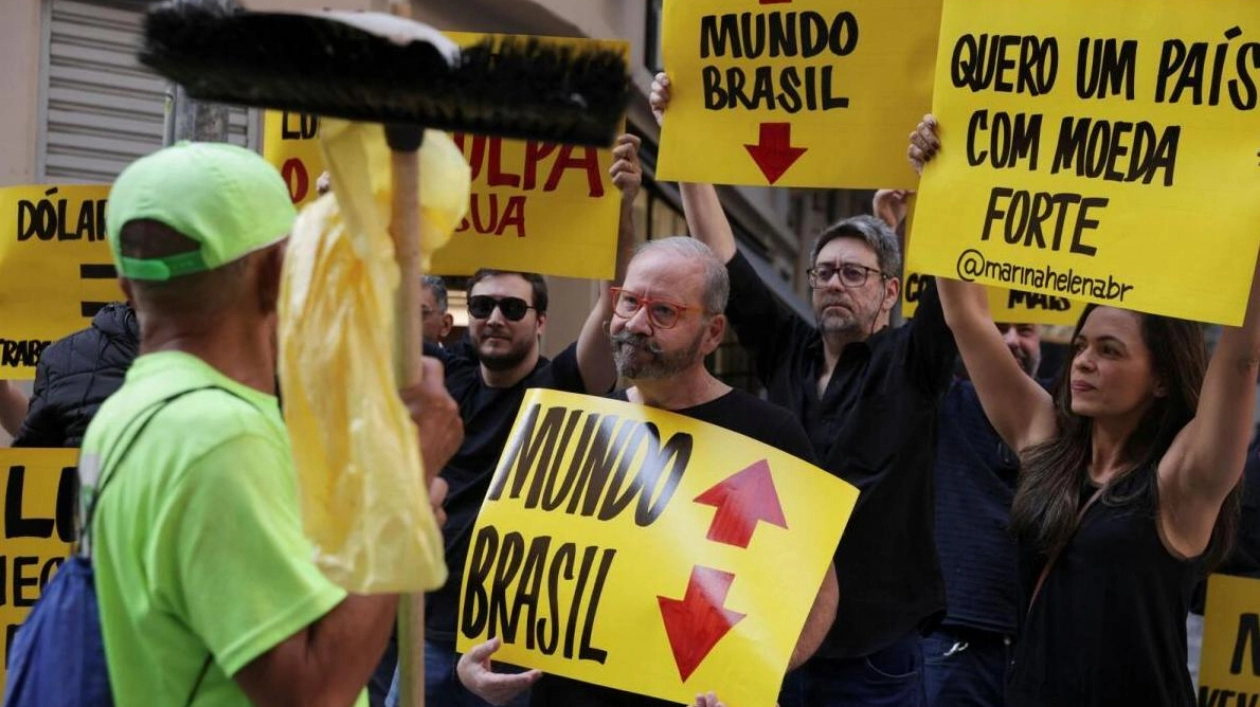Brazil's central bank has declared that it will conduct an extra swap auction on Monday morning, after two previous interventions on Friday failed to halt the decline of the real currency. These actions on Friday represented the second instance of foreign exchange interventions by policymakers since President Luiz Inacio Lula da Silva assumed office in January 2023. In a statement issued after market hours, the central bank announced it would provide up to 14,700 additional swap contracts on Monday. Earlier in the day, the monetary authority had sold 15,300 swap contracts, valued at $765 million, from the 30,000 offered in a surprise auction, following the sale of the entire $1.5 billion offered in a spot auction the night before. After starting the session stronger against the U.S. dollar, buoyed by the spot auction announcement on Thursday, the real reversed its trajectory to reach a session low of 5.69 per dollar, weakening by more than 1%. It later recovered slightly and closed the session down by about 0.2% after the unexpected swap offer. However, the year-to-date depreciation stands at approximately 14%, putting pressure on consumer prices and complicating the battle against inflation. Central bank chief Roberto Campos Neto, speaking at an event in Sao Paulo hosted by brokerage XP earlier on Friday, stated that interventions are not made based on hourly implications. "We focus on the flow and what needs to be addressed," he explained, noting that the decision was based on evaluating "atypical flow due to the rebalance of an index." These comments were made during the rebalance of the Morgan Stanley Capital International (MSCI) index, a key benchmark for international stock market investors. "If further interventions are required, we will proceed," Campos Neto added. Both the central bank governor and monetary policy director Gabriel Galipolo have emphasized that market interventions would only occur in cases of dysfunction and after thorough discussion. Galipolo, who manages the foreign exchange desk, has been nominated by Lula to lead the central bank from next year. A market source, speaking anonymously, suggested that the recent performance of the currency has alarmed policymakers, and the end-of-month Ptax rate offered an intervention opportunity. The Ptax rate, calculated by the central bank from spot market quotes, is used as a reference for settling futures contracts. "Now that they have opted to increase interest rates, the decision to sell dollars is more straightforward," the source commented. The central bank maintained the benchmark interest rate at 10.50% in July for the second time in a row but adopted a firmer stance, stressing that it would not hesitate to raise rates if needed. Lula expressed in a radio interview earlier on Friday that if Galipolo advises raising interest rates, "that's acceptable."

Text: Lara Palmer
01.09.2024
Interventions mark second instance since Lula's inauguration, aiming to stabilize the real





